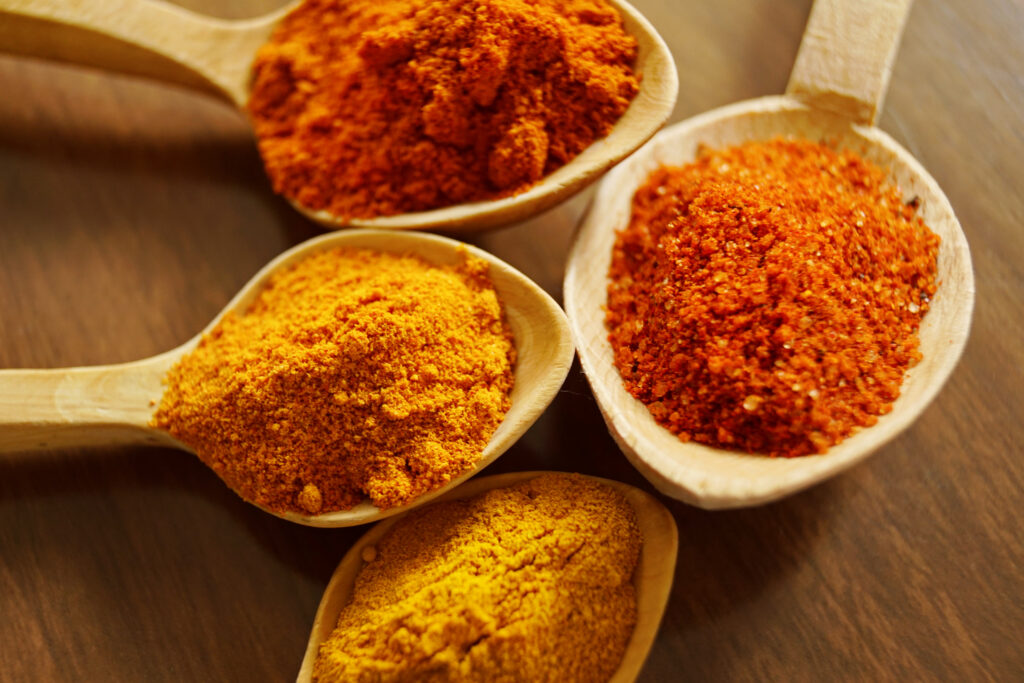A new study published in the medical journal BMJ has found that turmeric, specifically the compound curcumin found in turmeric, could be a potential treatment option for indigestion. The study compared the effectiveness of omeprazole, a common medication used to treat heart and esophagus problems, to turmeric in relieving symptoms of indigestion. The results showed no significant differences between the two treatments, leading researchers to suggest that curcumin/turmeric could be a viable alternative to omeprazole. While more research is needed, this study provides valuable insights into the potential benefits of turmeric in treating digestive issues.

Study Shows Turmeric as a Potential Treatment for Indigestion
A recent study published in the medical journal BMJ has suggested that turmeric could be a potential treatment for indigestion. The study compared the effectiveness of omeprazole, turmeric, and a combination of the two in more than 150 individuals with dyspepsia. Dyspepsia, commonly known as indigestion, includes symptoms such as stomach pain, bloating, nausea, and early feeling of fullness.
The participants in the study were evaluated using the Severity of Dyspepsia Assessment, a questionnaire that rates the severity of indigestion. Surprisingly, the study found no significant differences in symptoms between the groups taking omeprazole, turmeric, or the combination of the two. This suggests that curcumin, the compound found in turmeric, could be as effective as omeprazole in treating dyspepsia.
Lead study author Dr. Krit Pongpirul, an associate professor in the department of preventive and social medicine at Chulalongkorn University in Bangkok, Thailand, stated that curcumin/turmeric could be a viable option for treating dyspepsia with comparable efficacy to omeprazole. Turmeric has been used in Southeast Asia for centuries to treat various inflammatory conditions and stomach discomfort. In the United States, turmeric is primarily used as an anti-inflammatory and antioxidant dietary supplement for relieving osteoarthritis and irritable bowel syndrome.
This study is the first clinical trial that directly compares the effectiveness of curcumin/turmeric to omeprazole in treating dyspepsia. However, there are still questions surrounding the impact of turmeric on indigestion. Dr. Yuying Luo, a gastroenterologist and assistant professor of gastroenterology at the Icahn School of Medicine at Mount Sinai in New York City, suggests proceeding with caution. She points out that the scale used to measure symptoms in the study is not the most common one used for assessing improvement of indigestion. She also believes that more frequent measurements of symptoms would provide a clearer picture of turmeric’s effectiveness.
Despite these concerns, ongoing research is investigating the impact of curcumin on various inflammatory conditions. This suggests that more insights into turmeric’s potential benefits for indigestion could be discovered in the near future. However, it is important to consult with a doctor before incorporating turmeric into one’s diet or treatment plan.

Purchase Turmeric For Digestive Issues
Taking Turmeric Safely and Effectively
While turmeric has shown potential as a treatment for indigestion, it is crucial to take it safely and effectively. Curcumin extracts, the active compound in turmeric, may have possible side effects such as allergies and an increased risk of bleeding, especially for individuals taking anticoagulant or antiplatelet medications. It is important for consumers to be aware of these potential side effects before using curcumin extracts.
However, turmeric itself is generally considered safe when consumed in the amounts typically found in food. Turmeric spices typically contain around 3% curcumin, which is a relatively low dose compared to extracts commonly found in curcumin supplements. The dose used in the study, 2 grams, is also relatively low.
If someone is considering taking turmeric or curcumin supplements for better digestion, it is vital to consult with a doctor first. A doctor can assess any potential interactions between turmeric and other medications the individual is taking. Additionally, case studies have shown that curcumin can cause liver injury in some individuals. Therefore, it is important to monitor liver health while taking turmeric or curcumin supplements.
Dr. Luo suggests giving alternative treatments, such as turmeric, at least two to four weeks to see their full impact. Not all patients are the same, and individuals may respond differently to medication. It is essential to be patient and give the treatment time to work before making any conclusions about its effectiveness.

Correction Note
There are a couple of important corrections to make regarding the history of the medicinal uses of turmeric and the amount of curcumin in turmeric. The previous version of this story incorrectly attributed the source of this information. Turmeric has been used for centuries in Southeast Asia as a traditional remedy for various ailments, including inflammatory conditions and stomach discomfort. Additionally, turmeric spices typically contain around 3% curcumin, a significantly lower concentration compared to turmeric extracts commonly used in supplements.
In conclusion, the study suggests that turmeric, specifically curcumin, could be a potential treatment option for indigestion. However, more research is needed to fully understand its effectiveness and safety in treating this condition. It is always best to consult with a doctor before incorporating turmeric or curcumin supplements into one’s diet or treatment plan.
